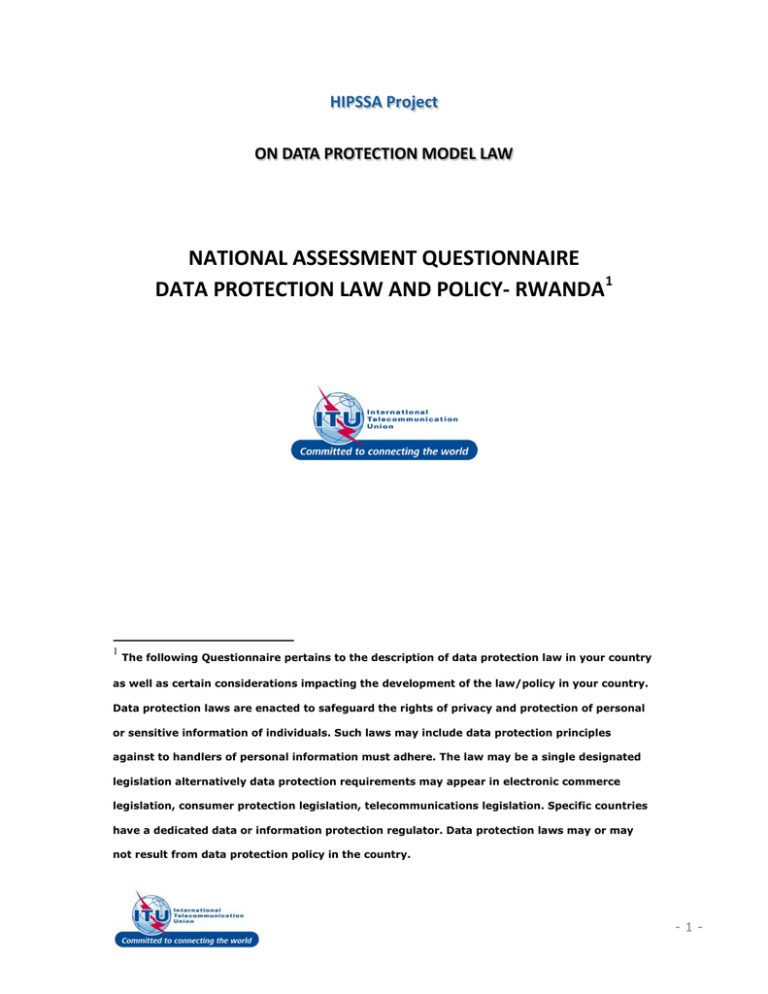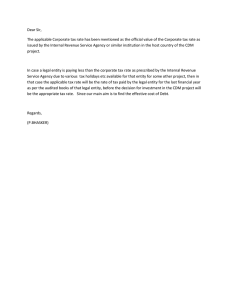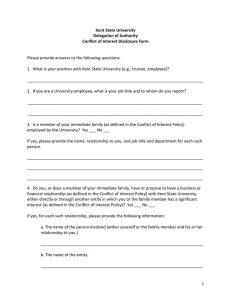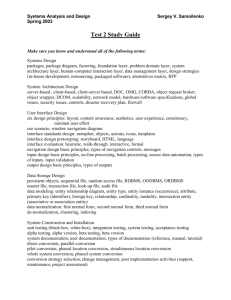NATIONAL ASSESSMENT QUESTIONNAIRE DATA PROTECTION LAW AND POLICY- RWANDA
advertisement

HIPSSA Project ON DATA PROTECTION MODEL LAW NATIONAL ASSESSMENT QUESTIONNAIRE DATA PROTECTION LAW AND POLICY- RWANDA1 1 The following Questionnaire pertains to the description of data protection law in your country as well as certain considerations impacting the development of the law/policy in your country. Data protection laws are enacted to safeguard the rights of privacy and protection of personal or sensitive information of individuals. Such laws may include data protection principles against to handlers of personal information must adhere. The law may be a single designated legislation alternatively data protection requirements may appear in electronic commerce legislation, consumer protection legislation, telecommunications legislation. Specific countries have a dedicated data or information protection regulator. Data protection laws may or may not result from data protection policy in the country. -1- 1. Does your country have a current Policy on data protection? Yes ___ No ___ *If Yes, please list. *If No, please specify any known reasons why there is not a policy on data protection in your country? 2. Does data protection have a designated legislation? Yes ___ No ___ *If Yes, please list the legislation, *If No, please specify any known reasons why there is not a law on data protection in your country?? 3. How do your laws define: personal information sensitive personal information: (Please describe 4. Is right to privacy and protection of personal information addressed in other laws or legal instruments? a. Constitution Yes ___ No ___ b. Other substantive data protection laws (e.g. laws prohibiting unauthorised collection, access or use of personal information, laws establishing minimum standards of safeguarding personal information, laws prohibiting unsolicited commercial communication to individuals, laws prohibiting international transfer of personal information, laws prohibiting monitoring or interception of personal communications): -2- Yes ___ No ___ *If yes, please list such legislation c. Procedural data protection laws (e.g., authority to access subject’s personal information held by third parties, authority to disclose personal information for the purpose of legal proceedings): Yes ___ No ___ *If yes, please list such legislation d. International or Regional Directives, Treaties, Cooperation and Mutual legal assistance related to data protection of country’s citizens: Yes ___ No ___ *If yes, kindly indicate the date of effect of such directives, treaties, decrees of co-operation. e. Self Regulatory Mechanisms (e.g. codes of conduct of internet service providers, wireless service providers, marketing associations related to data protection) 5. Does your country place any restrictions prohibitions on the transborder flow of personal information of your country’s nationals to other countries (e.g. require such countries to have substantive data protection laws) Yes ___ No ___ *If yes, please specify. 6. Has your country identified, created, or established a unit or entity specifically charged with (i) promotion and regulation of data protection and/or (ii) enforcement of data protection laws? -3- Yes ___ No ___ *If yes, please provide the following information: i. The exact name of the unit/entity: ii. The contact information of the unit/entity: iii. The details (name and contact) of the head of the unit/entity: iv. The institution to which the unit/entity reports: 7. If such a unit/entity has been created or established, are its functions dedicated exclusively to data (information) protection? Yes ___ No ___ *If no, what other functions does the entity have? 8. Has your country identified, created, or established a specific court or other dispute resolution forum in relation to data protection or privacy breaches? Yes ___ No ___ *If yes, please provide the following information: i. The exact name of the court: ii. The number of judges and experts in the court: 9. If such a court has been created or established, are its functions dedicated exclusively to disputes pertaining to data protection? Yes ___ No ___ *If no, what other types of disputes or offences is this court responsible for hearing? -4- 10. Are there any challenges (legal, technical and institutional) faced by your country in developing legal frameworks for data protection? Yes __ No ___ *If yes, please specify. 11. Does your country participate in regional or international deliberations, standards or policy setting on data protection? Yes __ No ___ *If yes, please specify. 12. What would be the special considerations for data protection law in Rwanda? e.g. a. health record laws, b. national security approaches, c. communication service providers regulation or self regulation, d. protection of employee records, e. protection of labour relations records e.g trade union records, whistleblowing records f. treatment of national data, national archives approaches etc. g. Other 13. In general terms, why is data protection a significant concern for Rwanda? -5- Notes: -6-





